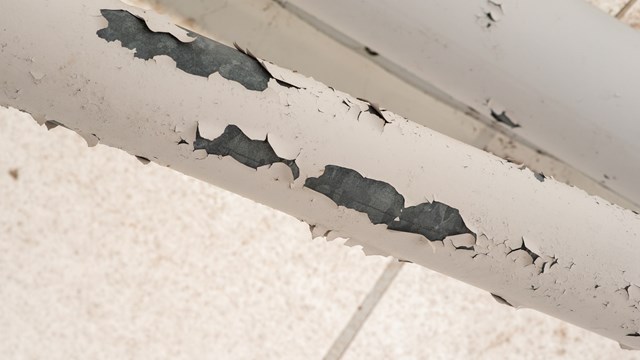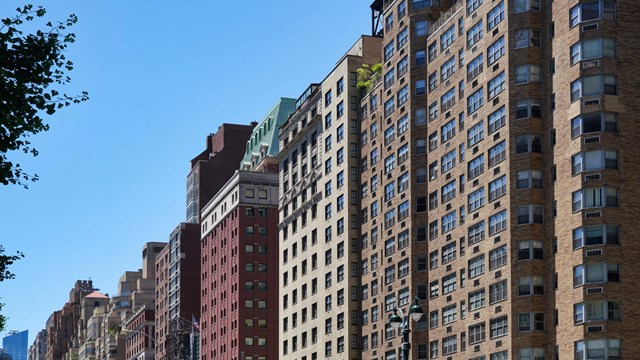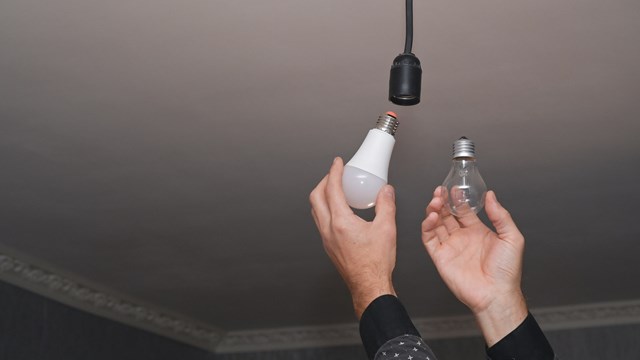In Atlanta, Georgia, it's illegal to tie a giraffe to a telephone pole or street lamp. In Pueblo, Colorado, it is illegal to let a dandelion grow within city limits. In Alabama, it is illegal to wear a fake mustache that causes laughter in church. You may not be arrested and jailed if you're caught pulling any of these stunts, but make no mistake: these rules are on the books, and if you're deemed unruly, publicly intoxicated, or otherwise disagreeable to the authorities while tethering your giraffe, cultivating your dandelions, or wearing your goofy mustache, they may decide to dust off these old laws and arrest you for them, too.
But here in the enlightened tri-state area, we would never dream of letting such antiquated, obscure rules clutter our law books--would we? The answer is--maybe. In addition to such legal oddities as the prohibition against shaking a dust mop out of an upper-story window, or the law against walking around on Sunday with an ice cream cone in your pocket, New York City has its share of unusual laws and ordinances. Some were enacted to address one-time misbehaviors (evidently someone, at some point, did stroll around Manhattan with an ice cream cone in his pocket, causing untold mischief) but most are a little more complicated and fall under the category of "blue laws."
In the beginning--that being around 1617 or so--the term "blue law" was coined to describe Colonial regulations that made church attendance mandatory and prohibited certain kinds of commerce on Sundays. A longstanding myth has it that the laws were called "blue" because the first such rules--originally passed in Virginia--were either printed on blue paper or bound in books with blue covers. Fact is, however, that the rules were written on regular old parchment. The word "blue" was used in colonial times to refer to rigid moral/social codes and their adherents--hence words like "bluenose" to describe the holier-than-thou moralists of that time (and this).
According to David J. Hanson, Ph.D., a sociology professor at the State University of New York at Potsdam, early blue laws prohibited work, travel, and recreation, as well as activities like cooking, shaving, cutting hair, sweeping, and making beds. It was also illegal to wear lace or precious metals, kiss your spouse, or engage in sex on Sundays. ("The Puritans believed that a child was born on the same day of the week on which it was conceived," says Hanson, "therefore, the parents of children born on a Sunday were punished for violating the blue law nine months earlier.")
According to Barbara and David P. Mikkelson of L.A.'s San Fernando Valley Folklore Society, blue laws also included specified penalties for moral offenses such as lying, swearing, and drunkenness and the playing of games such as cards, dice, and shuffleboard in public.
One colonial New York blue law drafted in 1695 read: "Be it therefore enacted that there shall be no traveling, servile laboring and working, shooting, fishing, sporting, playing, horseracing, hunting, or frequenting of tippling houses, or the use of any other unlawful exercises or pastimes by any of the inhabitants or sojourners within this province, or by any of their slaves or servants on the Lord's day." The punishment for any of these offenses was a fine of six shillings--or three hours in the stocks.
If you believe many supposed "historical" accounts of the penalties inflicted on blue-lawbreakers, three hours in the stocks was small potatoes. Other supposed sentences ranged from public floggings to having body parts burned or severed, to summary execution. While many of the accounts of extremely harsh punishments are likely exaggerations, the Mikkelsons say that there were indeed consequences to ignoring those early edicts, weird though they might seem.
While it's unlikely that anyone got strung up or incinerated for making the bed or selling a surreptitious pint of ale on Sunday, the laws did wind up costing non-compliant merchants money in the form of summons and fines--which often wound up in the pockets of the lawmakers. Non-Christian businesspeople (not that there were many back in the mid-1600s) were forced either to obey both the law of the land and their own sabbatical rules, thus shuttering their shops two days a week, or ignore the law and risk getting penalized for doing so. This illustrates another function of the laws themselves: along with enforcing Christian piety on Sundays and benefiting lawmakers, blue laws squashed competition from non-Christians on Sunday, as well as on whatever day the non-Christians took off for their own religious observance.
New York's first blue laws were drafted in the mid-to-late 1600s and paved the way for a few hundred years of legal entanglements. Within the ensuing centuries, it became illegal to arrest a dead man, play golf on the street, or appear in public with pants and shirt that do not match. It's also against the law in New York City to have an unclothed mannequin in a store window, or water your lawn with a sprinkler (anyway, did you ever see a sprinkler in New York City?)
While other towns like Albany and Ithaca had their own legal oddities, New York City especially has labored under more than its fair share of superfluous legislation. There's the law against throwing a ball at a stranger's head "for amusement," or the city-mandated anti-flirting ordinance that specifically prohibits men from turning around on any city street and looking "at a woman in that way." The first offense gets the ogler a $25 fine; a second conviction calls for the violating male to be forced to wear a "pair of horse-blinders" wherever and whenever he goes outside for a stroll.
Further illustrating the arbitrary and often contradictory nature of these laws is the one that prohibits women from wearing "body-hugging clothing" on the street--which, aside from being broken hundreds of thousands of times a day these days, is ironically in conflict with another law allowing of all things "toplessness."
It should also be noted that according to New York State law, "While riding in an elevator, one must talk to no one, and fold his hands while looking toward the door," behavior that doesn't seem so strange sometimes in the Big Apple.
According to the Mikkelsons, the surviving remnants of blue laws in the 20th Century are comprised of a "seemingly nonsensical patchwork of regulations--a jurisdiction might have regulations prohibiting the sale of hammers but not nails, or prohibiting the purchase of alcohol at liquor stores, but not grocery stores."
These inconsistencies and the general unenforceability of blue laws made them prime targets for legislative fat-trimming. After all, what bureaucrat would have the temerity to defend laws allowing cooked meat to be sold on Sunday, but forbidding the sale of raw meat--or insisting that service stations could sell gas and oil, but not windshield wiper blades? Buying alcohol on the Lord's day was one thing--that still had the air of vice about it--but what about weekend travelers caught in rainstorms with worn-out wiper-blades? What about barbeques? Clearly, the situation had gotten out of control.
And it was just that arbitrariness and scattershot application that ultimately undid blue laws in New York and elsewhere. In the multicultural melange that eventually became New York City, such regulations had always been onerous. In the early parts of the 19th century, the largely Protestant, largely conservative lawmakers in Albany seemed to relish handing down regulations against the morally bankrupt heathens downstate--even to the extent of outlawing sporting events like baseball on Sundays.
Needless to say, by the mid-20th century, the meddling of Albany in the affairs of New York City was really beginning to chap the hide of New Yorkers. Besides, society as a whole had changed; citizens resented the legislation of their private conduct and felt the government was doing them no favors by mandating whether they could purchase household items or drive somewhere, and when.
Blue laws didn't collapse overnight, however. According to Hanson, while all the laws requiring Sunday church attendance were abolished in the 19th century on the grounds that they violated constitutional rights and the separation of church and state, others hung on--until far more recently than you might think.
In Texas, for example, up until 1985, blue laws prohibited selling housewares like pots, pans, and washing machines on Sunday, and to this day, car dealerships in the state continue to operate under blue-law prohibitions. New York (mostly) lifted the ban on Sunday commerce in the 1970s. According to author Cynthia Blair's article appearing on Newsday.com, in June 1976, the New York State Court of Appeals declared the state's 281-year-old laws banning non-liquor sales on Sundays unconstitutional on the simple grounds that they were created and propagated by religious groups for religious purposes.
Judge Sol Wachtler of Great Neck wrote the court's opinion, and based his ruling on the seemingly arbitrary nature of the laws and the inconsistencies throughout. After the judge's ruling, says Blair, both Nassau and Suffolk County district attorneys began reviewing the hundreds of violations that had been issued under the now-repealed blue laws (for the selling of raw meat at delis and supermarkets, for example) to determine which ones would be dismissed. Most fell into the "dismissed" column.
Of course, with the exception of liquor laws, most of those old rules and laws aren't enforced anymore--if in fact they ever really were. You could probably get away with a goofy mustache in church or dandelions in your yard these days, but many states still prohibit selling alcohol on Sunday--although it's now the second busiest shopping day of the week, and a big day for parties and barbeques.
There are signs, however, that even the most stalwart blue laws are not long for the world. New York's long-standing ban on Sunday liquor sales was finally lifted by the state legislature in 2003--though not without having to override a veto from Governor George Pataki. The rescinding of the Sunday sales law wasn't a complete victory for shop owners, however: according to the new law, liquor storeowners who choose to do business on Sunday must shutter their shops on one other day of the week. And even still, the Sunday sales compromise sunsets in 2008, and after that, there's no guarantee that things won't go back to the way they were before. As it stands now, liquor stores can be open any six days a week, issuance of new state liquor store licenses has been temporarily frozen, and grocery stores are allowed to sell wine, but can only sell beer after noon on Sunday.
Despite the religious/moral history of blue laws, these revised rules have more to do with money than morals. Given that Sunday has become a major shopping day throughout the country, lawmakers tweaked the rules in order to take advantage of increased tax revenue from liquor sales. According to the Distilled Spirits Council of the United States (DSCUS), letting liquor stores stay open on Sundays in New York could net the state an extra $26.7 million in taxes and fees.
You may be able to buy a bottle of Grey Goose or Glenlivet from your neighborhood wine and spirits purveyor on Sunday, and drink it while gambling in a casino upstate--but you can't smoke in a bar on any day of the week, you can't dance in a club without a cabaret license--and you still can't stroll around the city with an ice cream cone in your pocket.







2 Comments
Leave a Comment